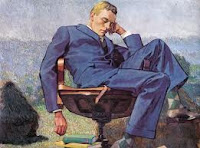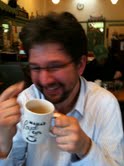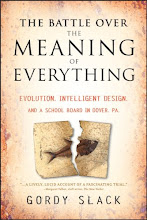 |
| "The Rememberer" |
For great audio of a sleeping cat's brain listen to this episode of Radio Lab at 3 minutes and 45 seconds. Better yet, listen to the whole thing and learn many facts and theories about sleep, including one fine explanation for the evolutionary popularity of having two brain hemispheres. Titled "Sleep," it's from Season 3 (2007), but listen anyway; old Radio Labs don't die, they just grow stronger.
The point of the sleeping cat sound: there is a storm of neuronal activity going on in the sleeping brain. Just because sleep is beautiful, doesn't mean it isn't hard work. That's true at midnight and in the middle of the afternoon, when I do my sweetest and most productive snoozing. Twenty minutes sometime between two and three o'clock and my 49-year-old brain feels fourteen again. There are coherent neuroscientific explanations, and more and more sleep scientists are describing them. For example, a Berkeley study led by psychologist Matthew Walker shows an hour-long nap dramatically boosts and restores brain power. He says, among other things, it refreshes the hippocampus' ability to form new memories.
On the other hand, the most emailed piece in yesterday's New York Times was titled "How Meditation May Change the Brain," by Sindya N. Bhanoo. It points to a new study published in the January 30 issue of the journal Psychiatry Research Neuroimaging finding that people who meditated for about half an hour a day for two months had increased gray matter in their hippocampi (read "memory machines") and and reduced gray matter in their anygdalae (read "road-rage machines.") That can't be bad.
But which is better, napping or meditating? Neurocience has not weighed in yet. So take you're pick. If you're too type-A to snooze on the clock, go ahead and sit instead. Either way, you're doing your brain a favor.
As a bonus for those who've read this far. here's a lovely piece by novelist Cathleen Schine, in RealSimple, about the blissful benefits available to those willing and able to sleep while others work.


